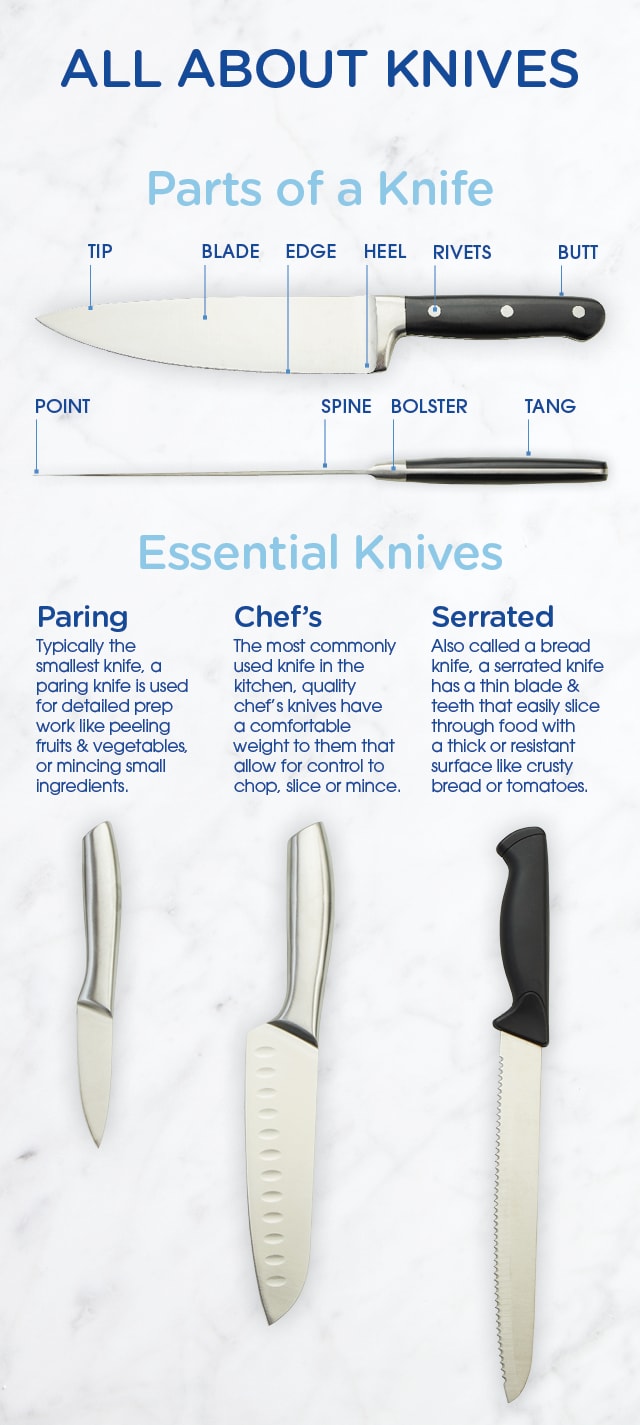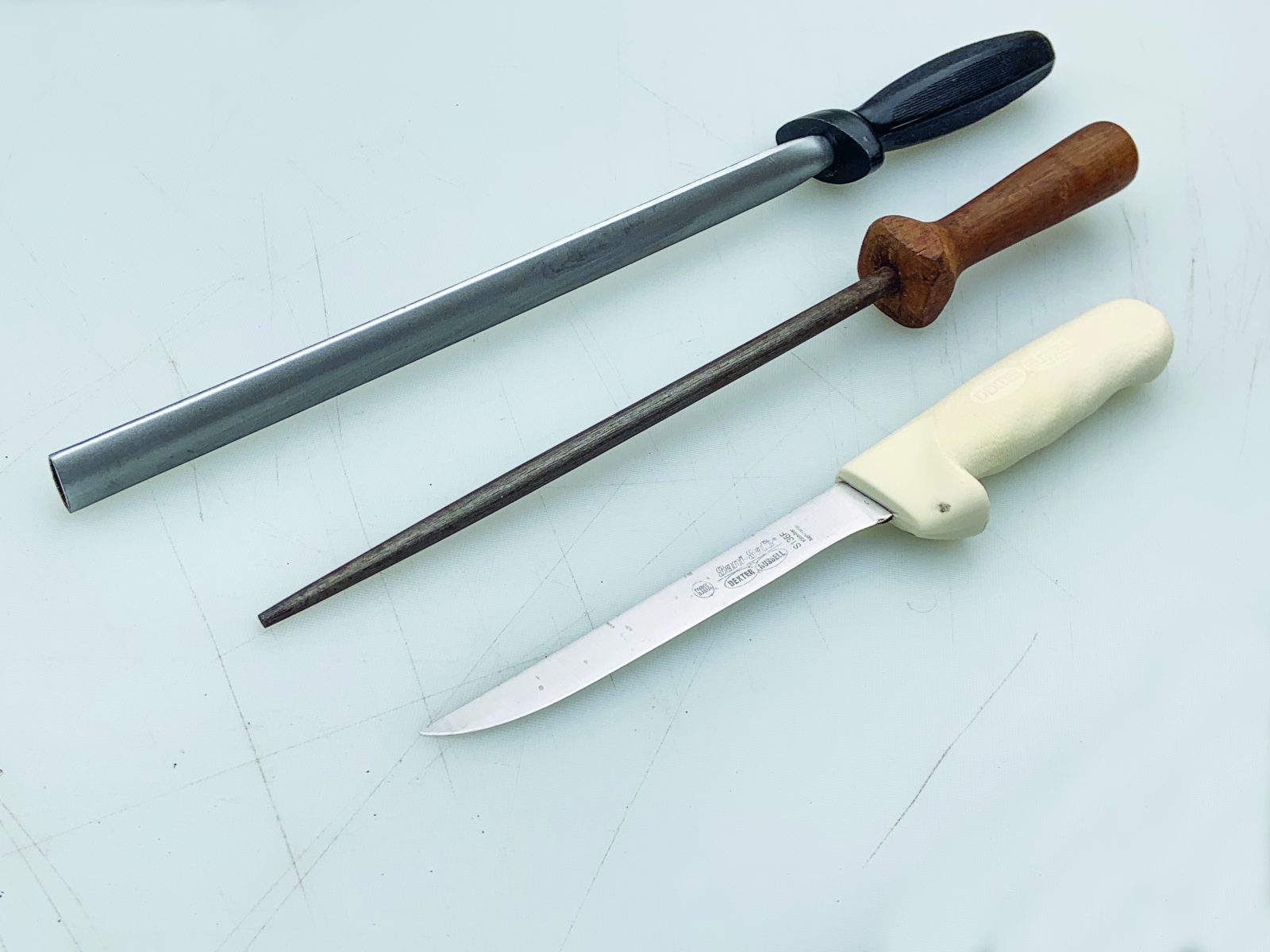How to Clean a Knife Without Rusting It, use hot soapy water and dry it immediately. A clean knife is essential for a variety of tasks, from chopping vegetables to preparing meat.
However, improper cleaning can lead to rusting, which not only damages the knife but also poses a health risk. Therefore, it is important to know how to clean a knife without rusting it. We will discuss an effective method that will help you maintain the longevity of your knives.
By following these simple steps, you can ensure that your knives stay clean and rust-free, allowing you to continue cooking with ease and confidence. So, let’s dive into the details and learn how to clean a knife without rusting it.

Credit: www.amazon.com
Choosing The Right Cleaning Method
When it comes to cleaning a knife without rusting it, choosing the right cleaning method is crucial. Using the wrong cleaning technique can lead to damage and rust formation on your valuable knife. In this section, we will discuss two effective methods you can use to clean your knife – Using Soap and Water and Using Baking Soda Paste.
Using Soap And Water
Cleaning your knife with soap and water is a simple and effective method that you can easily incorporate into your routine. Follow these steps to disinfect and clean your knife:
- Rinse the knife: Start by rinsing off any visible dirt or debris from the knife under running water. Be careful not to immerse the entire knife in water, as excessive moisture can promote rusting.
- Apply soap: Apply a small amount of mild dish soap directly onto the blade of the knife.
- Scrub gently: Use a sponge or soft cloth to gently scrub the blade, removing any remaining dirt or residue. Pay close attention to the areas near the handle and the blade edge.
- Rinse and dry: Rinse the knife thoroughly under running water to remove any soap residue. Pat dry the knife using a soft towel, making sure to dry both the blade and the handle completely.
- Apply lubrication: To prevent any future rusting, apply a thin layer of knife oil or food-safe oil onto the blade and handle. This will help to protect the metal from moisture.
Using Baking Soda Paste
If your knife has stubborn stains or built-up grime, using a baking soda paste can be an effective cleaning method. Follow these steps to clean your knife using baking soda paste:
- Make a paste: In a small bowl, mix baking soda with a small amount of water to create a paste-like consistency.
- Apply the paste: Using a soft cloth or sponge, apply the baking soda paste onto the blade of the knife. Make sure to cover the entire surface evenly.
- Let it sit: Allow the paste to sit on the knife blade for a few minutes to break down the stains and grime.
- Scrub gently: Using a soft brush or toothbrush, gently scrub the blade in circular motions to remove the stains. Avoid using abrasive materials that can scratch the knife surface.
- Rinse and dry: Rinse the knife under running water to remove the baking soda residue. Dry the knife thoroughly using a soft towel.
- Apply lubrication: As a final step, apply a thin layer of knife oil or food-safe oil onto the blade and handle to protect it from moisture and prevent rusting.

Credit: www.amazon.com
Proper Cleaning Techniques
Keep your knife clean and free from rust by following these proper cleaning techniques. Simply wipe it down with a damp cloth or use a mild dish soap to remove any dirt or residue. Dry thoroughly to prevent rusting.
Gently Wiping The Blade
When it comes to cleaning your knives, it’s important to adopt a gentle approach to ensure they stay rust-free for years to come. One of the key steps to achieve this is by gently wiping the blade after each use. A soft, lint-free cloth or a paper towel can be used to wipe off any remnants of food or moisture from the blade.
Start by rinsing the knife under warm water to remove any loose debris. Then, take your cloth or paper towel and run it along the length of the blade, making sure to cover both sides. Use light pressure and a back-and-forth motion to remove any remaining food particles or liquids.
By adopting this simple yet effective technique, you’ll prevent the buildup of grime and moisture on your knife, reducing the risk of rust. Regularly wiping the blade also helps to maintain its sharpness, ensuring it remains a reliable tool in the kitchen.
Avoiding Abrasive Cleaners
Another essential aspect of proper knife cleaning is avoiding the use of abrasive cleaners. While it may be tempting to grab a scouring pad or a harsh cleaning solution to tackle tough stains or residue, these can actually do more harm than good. Abrasive cleaners can scratch the surface of the blade, making it more susceptible to rust.
Instead, opt for gentle cleaning agents like mild dish soap or a mixture of water and vinegar. These solutions are effective in removing stubborn dirt and stains without causing damage. Simply apply a small amount of the cleaning solution to a soft sponge or cloth and gently scrub the blade. Rinse thoroughly with warm water and dry completely to prevent moisture retention.
By avoiding abrasive cleaners, you’ll prolong the life of your knife and maintain its pristine condition. This approach ensures that the blade remains smooth and free of any scratches or marks.
Drying And Storing The Knife
Properly drying and storing your knife is essential to prevent rust and maintain its sharpness. By following the correct techniques, you can ensure that your knife remains in top condition for years to come, ready for whenever you need it.
Thoroughly Drying The Knife
After cleaning the knife, thoroughly dry it with a clean and dry cloth to remove any lingering moisture. Pay attention to the blade and handle, ensuring that no water droplets are left behind that could lead to rust formation.
Avoiding Moisture-prone Areas
When storing the knife, make sure to place it in a moisture-free environment. Avoid keeping it in areas such as near the sink or on damp surfaces. Consider using a knife block or a magnetic strip to hang the knife, which allows for proper air circulation and keeps it away from moisture-prone areas.

Credit: www.foodsco.net
Preventive Measures
When it comes to maintaining the sharpness and quality of your knife, taking preventive measures is essential to avoid rust and preserve its longevity. By incorporating simple yet effective preventive measures, you can ensure that your knife retains its pristine condition. Here are some key preventive measures to help you keep your knife clean and rust-free.
Using A Cutting Board
Using a cutting board can significantly reduce the risk of rust formation on your knife. By utilizing a cutting board made of plastic, wood, or any other durable material, you can prevent excessive contact between the blade and abrasive surfaces. This helps in minimizing wear and tear, thus reducing the chances of rust developing on the knife.
Regularly Oiling The Blade
Regularly oiling the blade is a key preventive measure to inhibit rust formation. Applying a thin layer of food-grade mineral oil or any other reliable lubricant after each use forms a protective barrier against moisture. This helps to prevent the oxidation process that leads to rust, ensuring that your knife remains in optimal condition.
When To Seek Professional Help
When it comes to cleaning a knife without rusting it, it’s important to seek professional help. Expert advice and techniques can ensure that your knife is cleaned thoroughly and safely, preserving its quality and preventing rust formation.
Stubborn Rust Removal
While most minor rust issues can be resolved with regular cleaning and maintenance, there are instances when the rust becomes stubborn and difficult to remove. In such cases, it may be necessary to seek professional help to ensure that the knife is cleaned thoroughly without causing any further damage.
Professional knife sharpeners and restoration experts have the necessary tools and knowledge to handle even the most persistent rust problems. They are equipped with specialized rust removal solutions and techniques, which can effectively eliminate rust without compromising the integrity of the knife.
When you notice that the rust on your knife is not responding to standard cleaning methods such as vinegar or lemon juice, it may be time to consider professional assistance. They will assess the extent of the rust damage and determine the most appropriate course of action.
| Benefits of Professional Rust Removal: |
|---|
|
Maintenance And Servicing
Even if you don’t have a rust problem, regular maintenance and servicing are essential to keep your knife in optimal condition. By following a few simple steps, you can prevent rust build-up and ensure that your knife remains sharp and corrosion-free.
- Clean and dry your knife after each use to remove any moisture or residue that may promote rust formation.
- Apply a thin layer of food-safe mineral oil or silicone oil to the knife blade to create a protective barrier against moisture and oxidative damage.
- Store your knife in a clean, dry, and well-ventilated area to prevent exposure to excessive humidity.
- Regularly inspect your knife for any signs of rust or wear and address them promptly to prevent further damage.
- Consider periodic professional sharpening and maintenance to keep your knife in top-notch condition.
By taking these preventative measures and seeking professional help when necessary, you can ensure that your knife stays rust-free and ready for action.
Frequently Asked Questions Of How To Clean A Knife Without Rusting It
How Do You Properly Clean A Knife?
To properly clean a knife, follow these steps:
1. Rinse the knife with warm water to remove any debris.
2. Use a mild dish soap and a sponge or cloth to clean the blade and handle.
3. Avoid abrasive scrubbers that may scratch the knife.
4. Dry the knife thoroughly to prevent rusting.
5. Store the knife in a safe place to maintain its sharpness and longevity.
What Keeps Knives From Rusting?
To prevent rusting, knives need a protective layer of stainless steel or a coating. Regular cleaning and drying after use also help. Additionally, storing knives in a dry and well-ventilated area can prevent rust. Regular oiling can also provide a protective barrier against rust.
What Takes Rust Off Of Knives?
Use vinegar or lemon juice to remove rust from knives. Soak the knives, then scrub with a sponge or steel wool. Dry thoroughly.
Does Wd40 Prevent Rust On Knives?
Yes, WD40 can prevent rust on knives.
Conclusion
To keep your knife in top-notch condition, it is crucial to know how to clean it without causing rust. By following these simple steps, you can maintain the longevity of your knife and ensure its optimal performance. With regular cleaning and proper handling, you can keep your knife rust-free and ready for any task.
Remember, a well-maintained knife is every culinary enthusiast’s best companion. So, adopt these cleaning techniques today and say goodbye to rust-related issues. Happy slicing and dicing!

